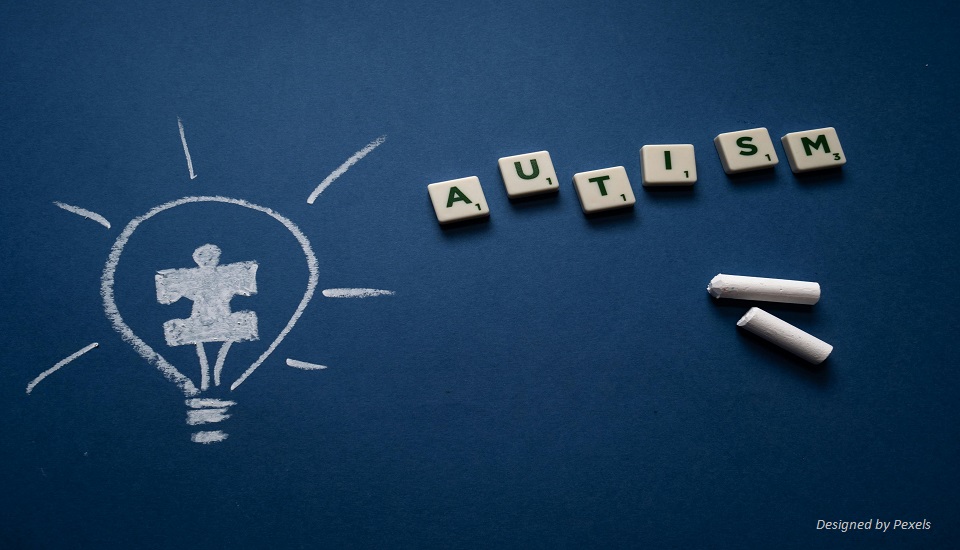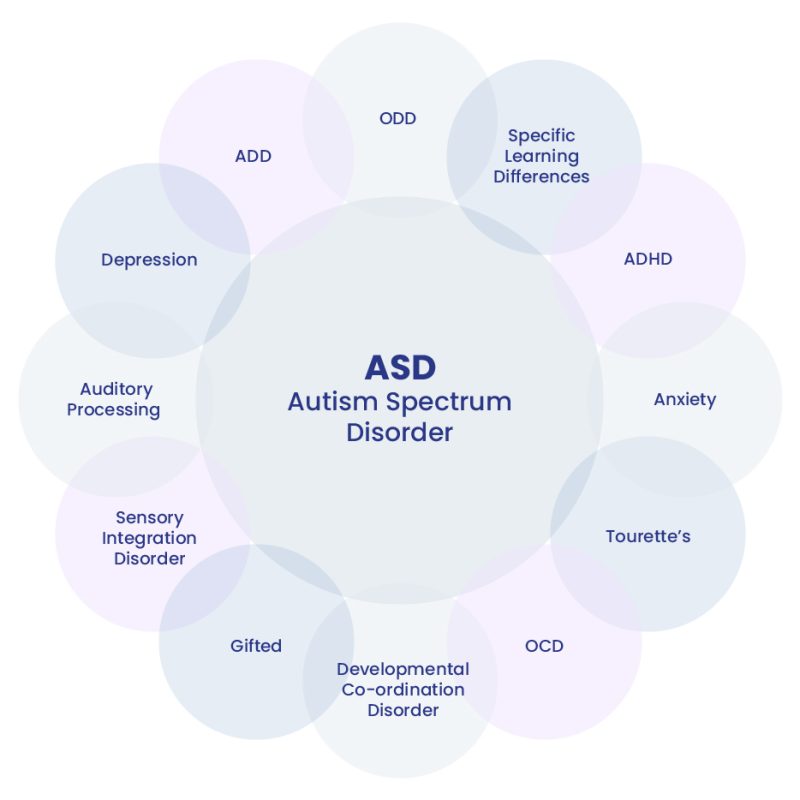
The neurodevelopmental disorders that create autism include sensory sensitivity, difficulty interpreting neurotypical social cues and norms, and a strong commitment to routines and rituals. Since an autistic person never truly ‘grows out,’ special education courses for educators may be quite beneficial. It is essential to see an expert if you have any concerns regarding a diagnosis you made for a child. This essay, however, will concentrate on the reasons for and types of misdiagnosis that can occur in autism.
Why Can Autism Be Misdiagnosed?
It can be challenging for adults with autism who were not diagnosed when they were younger to find a doctor who can assess them because many autism tests are designed for children. Many individuals with autism also suffer from other mental illnesses. As a result, they are sometimes misdiagnosed. Psychological evaluations for autism include behavioral observations provided by parents and teachers and the evaluator's tests and behavioral observations.
Because of prejudice, ignorance of neurodivergence, and masking, educators may misdiagnose individuals with autism. Furthermore, because most of the research on autism diagnosis focuses on how the disorder manifests in white males, it may sometimes overlook different ethnic and gender groupings.
Before you move to the topic, can we ask you a quick question? Do you follow us on Social Media? If not, then you’re missing out on a lot of informative content. We regularly share upgraded educational content, tips, feedback, and more. Check us out by clicking the profiles here - Facebook / Twitter / LinkedIn / Pinterest / Instagram / YouTube
6 Disorders That Can Be Diagnosed As Autism

The following conditions are frequently mistaken for autism but are not usually properly diagnosed:
1. Anxiety Disorders
Social anxiety disorder sufferers may be worried about autism. Their anxiety may be secondary to autism if they perceive that it is brought on by unpredictable encounters or difficulties interpreting body language and voice intonation.
Similarly, if someone finds that their ‘anxious’ behaviors do not match their nervous behaviors, they may have been misdiagnosed with generalized anxiety disorder.
2. Attention Deficit Hyperactivity Disorder
ADHD is diagnosed in nearly half of autistic people. As a result, it is not uncommon for someone to meet the requirements for both diagnoses. An additional examination that includes an autistic test may be beneficial for someone whose symptoms they believe cannot be sufficiently explained by their ADHD diagnosis.
Because people with ADHD and those with autism have issues with routine, communication, and focus, the diagnostic criteria for these two disorders overlap.
3. Borderline Personality Disorder
Impulsive behavior, erratic moods, and difficulty establishing and sustaining interpersonal relationships are all signs of borderline personality disorder (BPD). A person with autism may also have a personality condition, much like those with the other diagnosis.
However, neurodiversity is sometimes misdiagnosed as a personality disorder, and this is more common among women.
4. Obsessive Compulsive Disorder
Obsessive-compulsive disorder (OCD) is characterized by intrusive, unpleasant thoughts or images that are difficult to ignore or get rid of, as well as compulsive behaviors that are routinely carried out to reduce the discomfort the thoughts cause. OCD patients may suffer compulsions, obsessions, or both.
OCD is a condition that some persons with autism also have. However, stimming behavior is sometimes misclassified as a compulsion since repetitive language or movement can mirror obsessive behavior.
5. Post Traumatic Stress Disorder
Masking, or trying to behave in a neurotypical way when this is not how you normally react, causes a lot of stress. Additionally, autistic persons are more prone to be bullied, abused, and exploited than neurotypicals. Because of this, a sizable percentage of people with autism had previously been traumatized.
The overlap between trauma symptoms and autism presentation may be attributed to the high proportion of autistic individuals who also have a history of trauma. Because of this, people with autism could be diagnosed with post-traumatic stress disorder, and their behaviors might be attributed to trauma instead of neurodivergent traits.
6. Psychotic Disorder
Psychotic symptoms, such as trouble communicating and social disengagement, are comparable to those of autistic disorders. Psychosis is also commonly diagnosed using personality tests that include specific questions about reality and perception.
Psychosis scales may rise as a result of autistic people occasionally taking the test's questions more literally than the creators intended.
Bottom Line
There are misconceptions regarding autism's appearance and how it is commonly misdiagnosed, even within the psychological field. You must be able to distinguish autism from all of the other diseases listed above as a teacher who has taken Autism courses Online or offline. You may always contact a doctor to verify your information if you are unclear about your diagnosis. This will enable you to create an appropriate strategy to meet each student's unique needs.
We believe education should be accessible to everyone. That’s why we don’t charge for our blogs. Find the right course that will help you in your career with us, contact us at - 6292150868. You can mail us at act@asiancollegeofteachers.com
Get In Touch
UK – Registered OfficeAsian College Of Teachers Ltd (UK)
27, Old Gloucester Street, London – WC1N 3AX, UK
UK Toll Free: 0-808-189-1203
www.asiancollegeofteachers.co.uk
All SEN Courses are designed, developed and created by Asian College of Teachers Ltd, United Kingdom. These courses are certified by CPD Certification Service UK and endorsed by NCC Education, UK, and Short Courses from CACHE, UK through Laser Learning UK.
Asian College of Teachers (ACT) undertakes a continuous review of its teacher training courses to ensure imparting high quality education. However, there might be circumstances outside of ACT’s control which might affect its stakeholders like if you are planning to teach in a different country, applying for a teaching license, pursuing higher studies or trying to get the certificate approved by the Ministry of Education (MoE) of a particular country then you can do so with the certificate issued by Asian College of Teachers (ACT). However, each country’s Ministry of Education (MoE) or educational bodies set certain standards that are indispensable for the pursuit of higher studies or teaching in schools in that country. So it can be a possibility that you may be able to use the certificate for higher studies or teaching purposes in one country and not in another. Therefore, we strongly recommend that you investigate thoroughly and check with the relevant authorities regarding the acceptance of the certificate issued by us before you enrol on a particular course. ACT strives to offer high-quality education and its certificates can be valuable for various purposes internationally, but still it is crucial for individuals to verify the specific recognition of the certificate in the country they intend to use it, especially for formal education or professional licensing purposes. This approach ensures that the stakeholders make informed decisions regarding their educational and career paths.
© 2025 Asian College of Teachers. All Rights Reserved. Asian College Of Teachers is a trading brand of TTA Training Pvt. Ltd (India) - CIN U80902WB2016PTC215839, Asia Teachers Training Co., Ltd (Thailand) - Registration No. 0105558193360, Asian College Of Teachers Ltd (UK) - Company Number 9939942 & Asian College Of Teachers LLC, (USA) - Federal Tax Identification Number 30-1261596
Designed by kreativewebtech